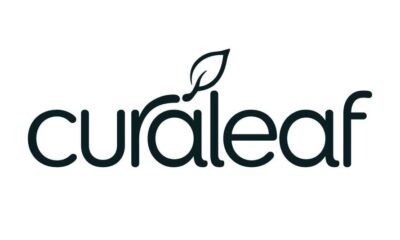A few of the larger players in cannabis have dropped their latest earnings reports recently, but the real onslaught will begin in the next few weeks. Unfortunately, one analyst believes that overall there won’t be meaningful sequential sales growth in the quarter.
Pablo Zuanic of Zuanic & Associates recently looked at state cannabis sales reports year-over-year and noted that most reported that sales declined or were flat. New Jersey and Pennsylvania were notable exceptions to the trend, he said. On a sequential basis, Zuanic said growth stalled even in new adult-use markets like Connecticut, Maryland and Ohio.
What gives?
According to Zuanic, price deflation is the main culprit. Data from Headset and Cannabis Benchmarks showed that prices in most markets fell from last year at the retail level and also at the wholesale level.
For example, in Illinois, retail prices dropped 9% year-over-year and 4% quarter-over-quarter. Florida seemed to have fared the worst, with prices plunging 27% in the 2024 fourth quarter, 21% in the third and 6% in the second quarter. At least the first quarter was stable for the state.
Despite the gloomy outlook, Zuanic saw some silver linings in the industry. Limited license states like Illinois, Maryland, Ohio and Pennsylvania remain attractive markets.
Adapting
Multistate operators aren’t giving up either, and many are making adjustments to weather the storm.
“We are seeing vertical operators allocate more product to their own stores to protect margins. All this, in a context of companies continuing to find ways to cut costs,” Zuanic wrote.
He also pointed out that some companies, such as MariMed, are adding stores in Maryland and Illinois to boost the company’s top line. Vext and Jushi are taking a similar tack in Ohio.
Zuanic believes that MSOs will continue to engage in balance sheet restructuring, but this could affect dilution risk for equity investors. Investors likely will be looking at debt levels for companies – and become particularly sensitive to IRS debt levels. Some companies have avoided paying these taxes with the hope that there will be some relief from 280e, but that means big debts to the IRS have been building.
Pennsylvania’s promise
Hope seems to be a big part of the 2025 playbook. There are hopes for banking legislation and hopes for rescheduling. However, despite sniffing hopium, the more concrete opportunity for MSOs looks to be Pennsylvania. This medical market has the full-throated support from Gov. Josh Shapiro to legalize adult-use cannabis – despite previous efforts falling short.
Fourth-quarter 2024 sales in the state reached $457 million, up 17% year over year, after 11-12% growth in the first three quarters. Buying limits, more stores and greater assortments likely helped fuel growth.
“We calculate Pennsylvania patients buy $344 worth of product every month, well above the $200 average we see in matured med markets,” Zuanic wrote. The state is also experiencing price deflation, though not to the same level as other states – and the data indicates that that downward trend could be stabilizing.
Zuanic wrote that the largest MSOs in terms of the number of medical stores in Pennsylvania include Trulieve (20 dispensaries), Curaleaf (18), Green Thumb (18), Verano (18), and Jushi (17). Other active MSOs include Acreage Holdings, Ascend Wellness, Ayr Wellness, The Cannabist Co., Cresco Labs, TerrAscend and TILT Holdings. These may be the companies best suited to benefit from legalization expansion in the Keystone State.

 California Cannabis Updates1 year ago
California Cannabis Updates1 year ago
 Breaking News1 year ago
Breaking News1 year ago
 best list1 year ago
best list1 year ago
 Business12 months ago
Business12 months ago
 cbd1 year ago
cbd1 year ago
 Bay Smokes1 year ago
Bay Smokes1 year ago
 cannabis brands12 months ago
cannabis brands12 months ago
 autoflower seeds12 months ago
autoflower seeds12 months ago

















































